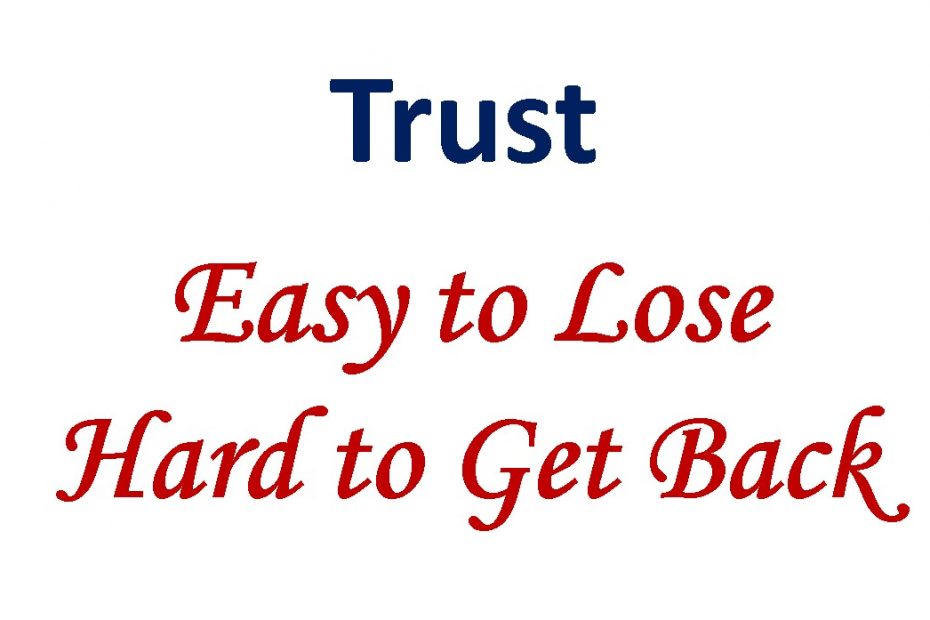When I talk about trust in leadership development workshops, there are always some participants, often many participants who have stories about leaders who they just didn’t trust. That is not surprising but it is a little baffling. How can there be so much distrust in today’s oh-so-enlightened world? It doesn’t take any kind of AI to understand what causes this lack of trust in leaders. In fact, a team’s lack of trust in their leader is usually caused by some age-old actions by the leader.
Leaders demonstrate a greater regard for their own future success than that of their team members. The team is very aware that when problems arise or things get difficult, their leader will do whatever his best for him or her and not the team. What’s amazing is that leaders will be more successful when the team trusts the leader to support them.
Leaders act as though they don’t trust their team. Trust goes both ways. If the leader obviously doesn’t trust the team, the team most likely will not trust the leader. I was working on an aircraft mishap investigation team when the leader tasked me to interview several people who may have had some helpful information. Each time I spoke to one of the assigned interview subjects the response was the same: why are you asking me this? I would explain that the team leader had tasked me to ask these questions. They would inform me that the team leader had already spoken to them. That leader obviously didn’t trust me and completely lost my trust.
Leaders are rude, aggressive, and sometimes just mean to their team members. It’s hard to trust someone who yells at you and treats you like a lesser being. You can never be sure when something is going to light the leaders fuse and set off an explosion. That’s a difficult environment in which to foster a trusting relationship.
Leaders are dishonest. This is the fastest and most common reasons leaders lose the trust of their team and it’s something I just can’t explain. It ranges from trying to present themselves to the team as more than they are; more knowledgeable, more experienced, more capable, to just plain lying to the team. No matter what form dishonesty takes, teams see through it very quickly and then – loss of trust.
So how do you gain, and keep, trust?
1. Know who you are. What are your values? What are your strengths; your weaknesses? How do you like to communicate? Be honest. Are your team members likely to misinterpret your actions or comments?
2. Treat your team with respect.
3. Keep your team informed. Make sure they know what you’re thinking. If there is something you can’t tell them, be honest about that and then fill them in as soon as possible.
4. Never lie! If you don’t know say so. If you aren’t an expert in a particular area, admit that and listen to those who are.
Remember – trust is easily lost and extremely difficult to regain. Gaining trust means being trustworthy yourself.
